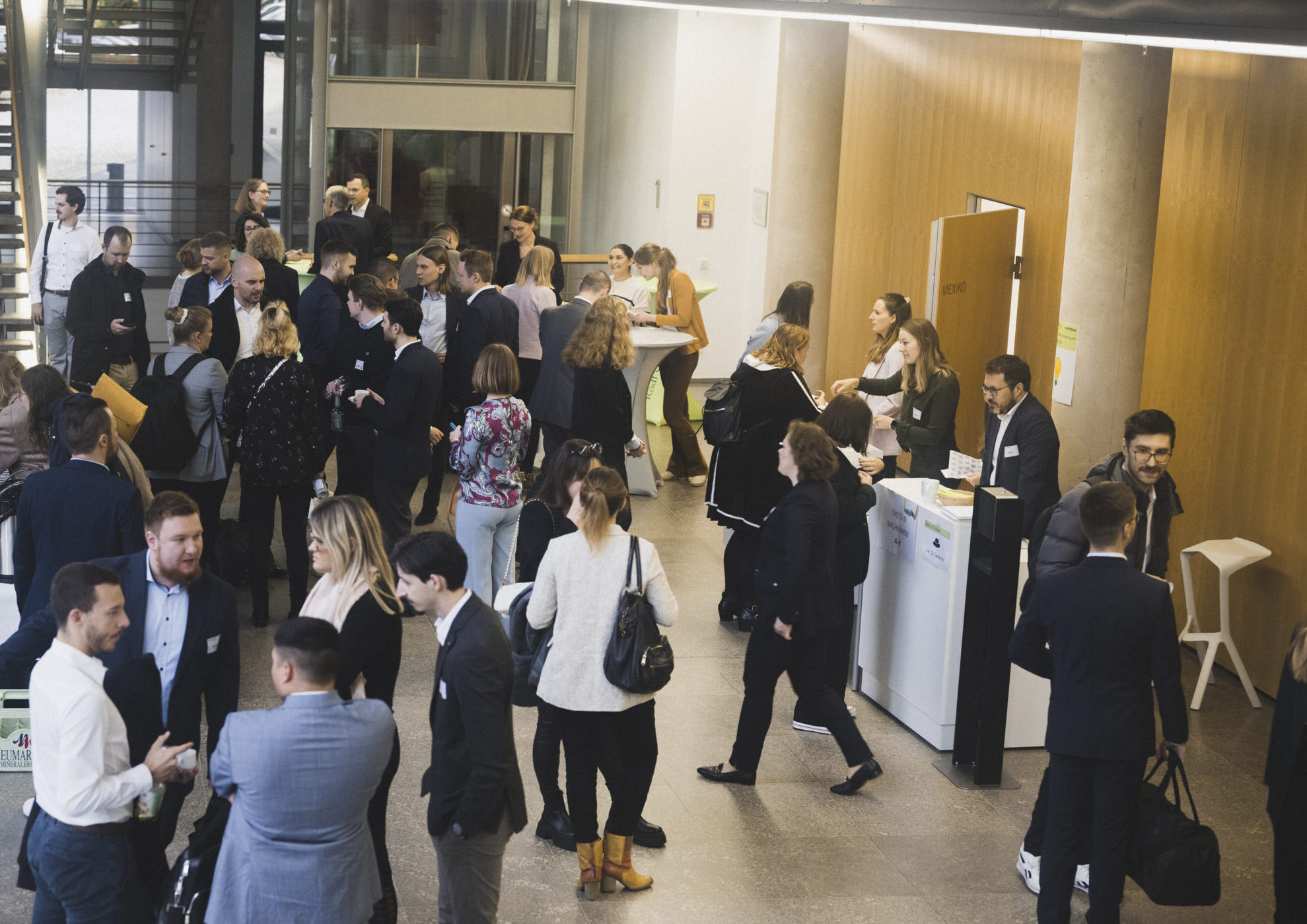
Our
careers blog
Find out more about the world of work and the people behind #weareroedl. In addition to short news from our service lines, our colleagues share exciting experiences from their day-to-day work and their individual career paths. Success stories become visible here!
#Roedlnews
Apprenticeship
Audit services
BPO
Career & Family
Career entry
Internal functions
International
Internship
Legal advisory
Legal traineeship
Management and IT consulting
Sport
Tax consulting
20 years of success: from apprenticeship to team lead
Julia Heckele began her apprenticeship at Rödl & Partner 20 years ago. As a tax consultant in the tax declaration department, she heads a team of around 20 people at the Nuremberg office. The development…Fathers in care work
Achievement or necessity? At Rödl & Partner, we strive for a work-life balance that gives our employees the opportunity to optimally combine career and care work. Of course, this applies not only to mothers, but…Three months in Pune
Hendrik Petri has been working at Rödl & Partner as a manager in Bielefeld in the field of transfer pricing since 2019. Since his start, he has been closely collaborating with our international colleagues. At…
An architect in a consulting firm
Barbara Straube is 53 years old and an architect. Since 2017, she has been responsible for the entire facility management at Rödl & Partner. Now, she oversees not only our headquarters in Nuremberg but also…
My path to Rödl & Partner
After completing his degree in political economics, Julius Held was faced with the question of the right career start. In this interview, he explains how he mastered this step and what experiences he had in…AI in Audit & Advisory
Tassilo Föhr has been with Rödl & Partner since 2024 and leads a small team in auditing that focuses on optimizing the service line through artificial intelligence. Since his master's studies and especially in his…Your Tax Experience: My way into tax consulting
Tijana Budjevac is a student of business law. During her studies, she is completing the Your Tax Experience programme at Rödl & Partner in Nuremberg. This internship programme enables students to gain practical experience early…Events
New perspectives: from India to Germany
Ankur Bhardwaj has been working as a Senior Consultant in Transaction Advisory & Valuation Services at Rödl & Partner India in Pune for the past three years. As Rödl & Partner's largest Indian office, Pune…Secondment in Oslo
Lara Kiefer has been working as a lawyer in Munich at Rödl & Partner for more than 3 years - since last year as a Senior Associate. With her team she advises clients particular in…
A successful start: Welcome Day
Our Welcome Day takes place once a quarter - an important part of the traditional onboarding process at Rödl & Partner. Once again, we had the pleasure of welcoming all new colleagues to our head…
Compatibility of career and family is not a one-way street
In 2016 Anke Führlein took over the management of the service unit Training & Development at Rödl & Partner in Nuremberg. She has two boys (10, 21) and works 35 hours a week. As Head…Tax Starters: Our young talent programme in tax consulting
As a leading tax consulting firm, our aim is to support young professionals from the outset and accompany them on their journey at Rödl & Partner. In this context, we have developed the "Tax Starters"…Diversity Week 2024
To mark the German Diversity Day on 28. May 2024 and the International Day for Cultural Diversity on 21. May 2024, we spent an entire week focusing intensively on the topic of diversity at Rödl…
Promoting talent through internal mentoring
We support our talent at every stage of their careers. Our internal mentoring programme pairs selected mentees with experienced mentors who work with them for a year. But it is not just the mentees who…
A one-day internship with impact
Silan Sertdag is a working student in auditing. It all started with a one-day internship. Below she reports on her first impressions of Rödl & Partner and her future career goals.The Audit Academy: A guide to getting started in auditing
As one of the leading providers in the field of auditing, Rödl & Partner relies not only on experience and expertise, but also on the continuous professional development of its employees. With this in mind,…A student in auditing
Emilia Groll is 16 years old and is currently in Year 11 at a secondary school in Germany. She will graduate in a year's time. Over the summer, she completed a two-week internship in our…
Welcome Back: A new start at the old workplace
Lia Horsch joined the Employer Branding team mid-September 2023 with a focus on university marketing, returning to the service unit Global Function People & Development after a brief career break as a research assistant in…
Balancing career and family
Judith Moneke-Schmidt started working for Rödl & Partner in Nuremberg in 2013 as an HR development officer. She now heads the Employer Branding and University Marketing team in the Global Function People & Development. She…Career path of an auditor
Dorothea Klopf is 34, comes from Lower Franconia and has been working at Rödl & Partner in Munich since 2014. After passing both her exams in tax consultancy and auditing, she has been an auditor…Career and sportiness in harmony
Frederic Wolff on his career as a lawyer at Rödl & Partner: what he particularly likes about his work and how he manages it despite his time-consuming and sporting hobby.
Success story Selb: Insights into our BPO team
In the following interview with Franziska Konrad and Veit Christopher Brose, you could find out what the two associate partners value about our location in the small town of Selb, how they characterise their colleagues…
Career with prospects: apprenticeship, business administrator, MBA programme
Lena Schulz has been with Rödl & Partner in Nuremberg since 2016. Her journey in the firm began as a trainee and then led to the position of team assistant. Today, she works as a…Expedition Economy: A one-day internship provides insight
"Out of the lecture hall, into the business world" serves as the guiding principle of the junior initiative Expedition Economy, organized by the IDW in collaboration with universities, businesses, and students. Through short-term internships –…Flat hierarchies and a dynamic team
In this article, lawyer Nicolas Rajko talks about his reasons for joining Rödl & Partner, his day-to-day work and reveals what he would advise newcomers to the profession.





